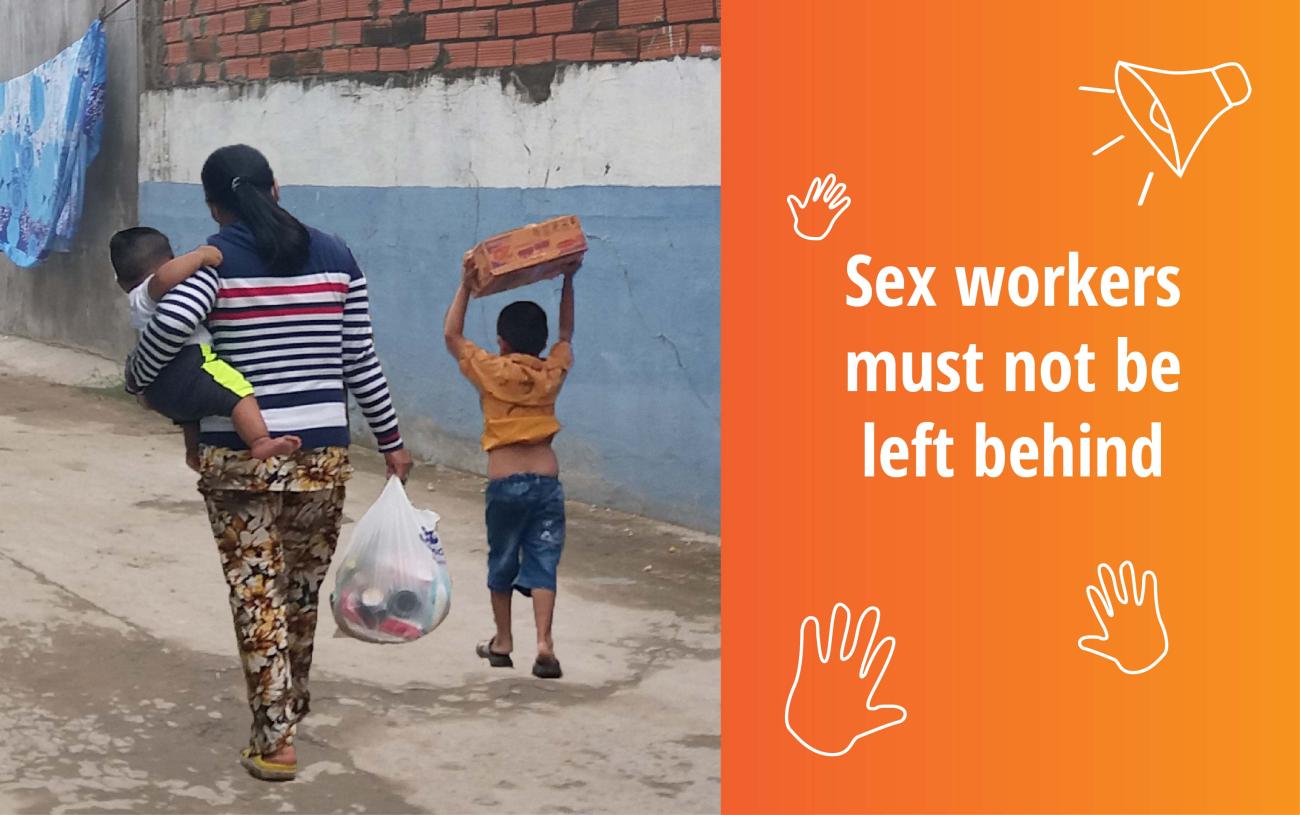Sex workers are exposed to gender-based violence easily as a consequence of social stigma and illegal status of sex work. “Once, a client kept me in a room for 2 hours forcefully. He beat me up.” memorized by An (not her real name), a street-based sex worker in Viet Nam.
“I cannot report to the police because sex work is illegal.” Spending all her time making a living, she did not have any information where she could turn to for getting support. Her family didn’t know her occupation. So, she kept the traumatizing experience to herself only.
An is the breadwinner supporting the livelihood of her mother and a 5-year-old son. COVID-19 has hit the poorest and the most vulnerable the hardest. During the social distancing policy, only three regular clients. She begged her clients to pay an extra 50,000 VND on the 100,000 VND fee each time. Yet, the house rent and utilities still cost her 1.2 million VND monthly. Her meager earnings can hardly support their living expenses and her son’s school fee.
Fortunately, her son’s school principal and their landlord were aware of their hardship. They allow An to pay back the fees when her financial condition improves. Up till now, An is still struggling to earn a sufficient income to support her family.
Thuy (not her real name) faces a similar situation in the other province in the Mekong Delta. Due to the financial difficulties of her family, Thuy dropped out of her junior high school to work. She is now a single mother of a three-year-old and a six-year-old. She works as a sex worker and part-time housemaid. The clients at sex work pay her 150,000 VND each time, but Thuy needs to pay for the room and condoms. Taking care of her children, she cannot spare much time working and earning money.
In early 2019, Thuy encountered an offer. “The people promised me to get a well-paid job in China,” said Thuy. After her neighbor agreed to take care of her children, she followed those people to China, wishing for better incomes. She revealed, “In China, I was kept in a house and forced to sell sex.” Thuy was trafficked to China for six months.
Thuy was rescued thanks to a joint effort of public security forces and returned to Viet Nam in December 2019. Life in her hometown became even more challenging. Thuy bitterly shared, “I become notorious because people in my community spread rumors behind me. Most people were not willing to get close to me.”
Shortly, the COVID-19 health crisis and destructive typhoon further halted her sources of income. “Struggling to feed my two children, I started asking for rice everywhere, sometimes in the pagodas, sometimes at the tea stalls along the pavement.” said Thuy, who is looking pale and drawn. “I have even thought of committing suicide. Life is too harsh to me.”
The social and economic fallout from the pandemic disproportionately affected the livelihood of sex workers. The risk of violence against them has raised. Due to stigma, discrimination, and illegal status of sex work, it’s usually very difficult for sex workers to access social protection in case of violence.
Everyone, including sex workers, is entitled to work decently with dignity and safety. Collective efforts are needed to protect sex workers from violence. The United Nations, joining other organizations* supporting the rights of sex workers, calls for zero discrimination against for sex workers and equal access to health care and social support for every people.
*The sex workers featured in this story have been reached by the Viet Nam Network of Self-help Groups of Sex Workers (VNSW) and received joint support from UNAIDS and VNSW for mitigation of the impacts of COVID-19




